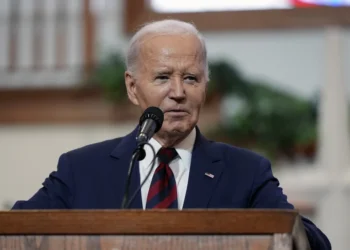Underlining his reliance on extremist coalition partners to remain in power, Israeli Prime Minister Benjamin Netanyahu‘s government approved a major expansion of settlements in the West Bank on Thursday. The decision, orchestrated in part by extremist Finance Minister Bezalel Smotrich, obviously aims to serve settlers and the settler expansionist agenda. However, it undermines Israeli and, because of Israel‘s close relationship with America, U.S. relations with moderate Palestinians and close Middle Eastern allies.
Israel seized control over the West Bank from Jordan following a war with Egypt and Jordan in 1967. While Egypt precipitated that war with growing threats to Israel’s existence, the international community, including the United States, with the exception of the first and second Trump administrations, has viewed the subsequent creation of Israeli settlements in the West Bank as illegal.
True, every serious analyst recognizes that some of these Israeli settlements would be legally recognized as part of any future Israeli-Palestinian peace agreement. True, Hamas’s rampage through southern Israel and Israel’s military response mean there is very little prospect of any final status peace agreement in the near future.
Nevertheless, the challenge that Israeli settlements in the West Bank present is that they will reduce the territory available for any future viable Palestinian state, fuel anti-American Islamist extremist recruitment, and further complicate relations between Israel and the U.S.’s Arab allies. Jordan, for example, is deeply concerned that expanding settlements will prolong the Israeli-Palestinian conflict and risk an exodus of Palestinian refugees into its territory.
The West Bank is increasingly unstable, and this will do nothing to check that troubling trend. Israel has faced a rising, highly problematic threat from the Palestinian Islamic Jihad terrorist group in the West Bank. That threat has necessitated robust action from Israeli military and security forces. However, at the same time, too many Israeli settlers employ violence to displace their Palestinian neighbors. Netanyahu’s government has too often willfully tolerated these extremists even as it has rightly confronted threats to Israeli citizens.
All of this underlines why U.S. presidents until Donald Trump opposed Israeli settlement expansions in the West Bank. As former President George W. Bush observed in 2002, “Israeli settlement activity in occupied territories must stop. And the occupation must end through withdrawal to secure and recognize boundaries consistent with United Nations Resolutions … “
But that was then. Today, Trump appears to care little for the West Bank challenge. In turn, Netanyahu’s government has openly admitted that complicating prospects for a future Palestinian state is a key motive behind its settlement policy. As Israeli Defense Minister Israel Katz explained on Thursday, it is a “strategic move that prevents the establishment of a Palestinian state that would endanger Israel, and serves as a buffer against our enemies.”
CPAC HUNGARY: THE AGE OF CHINESE COMMUNIST PARTY COLLABORATORS IS HERE
Netanyahu may like this announcement for the political consolidation it will generate from the right-wing of his Cabinet. Israeli settlers will obviously be happy. But this announcement will hurt Trump’s interest in greater regional cooperation, generate useful propaganda for terrorists, and only reinforce the hatred that ultimately sustains this conflict.
If he is serious about charting a new, more productive U.S. foreign policy in the Middle East, Trump should condemn this action.
















